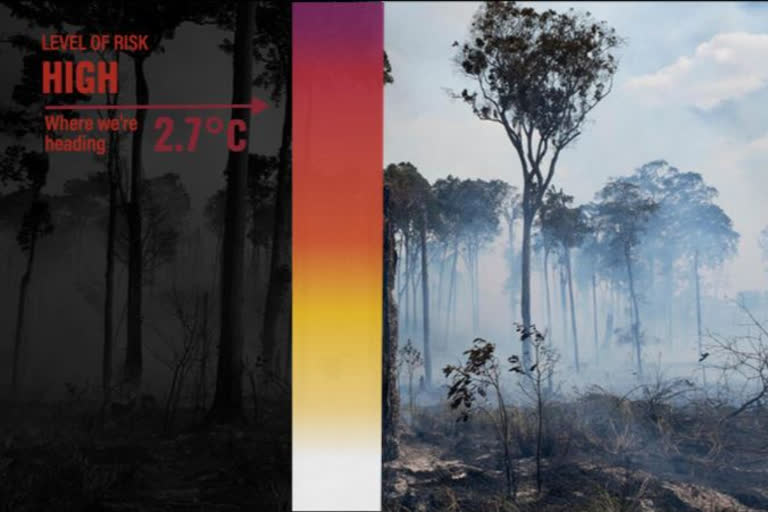New Delhi: India has been taking the lead in raising the issue of climate finance and its efforts have exposed exaggerated claims by developed countries that the goal of mobilising USD 100 billion per year to help developing countries is close to being met, the government has said.
At the 15th Conference of Parties (COP15) of the United Nations Framework Convention on Climate Change (UNFCCC) held in Copenhagen in 2009, developed countries committed to jointly mobilise USD 100 billion (one billion =100 crore) per year by 2020 to address the needs of the developing countries. At COP21 in Paris, with the developed countries having failed to keep their commitment, it was decided to extend the USD 100 billion per year goal through to 2025.
India has been taking the lead in raising the issue of climate finance at the UNFCCC and in other multilateral forums. India's efforts have repeatedly exposed exaggerated claims by developed country agencies that this goal is close to being met and have shown that the currently mobilised climate finance is in reality much less, Union Minister of State for Environment Ashwini Kumar Choubey told the Rajya Sabha on Thursday.
The minister said India has also been in the lead in calling for clarity in the definition of climate finance, and in clarifying the importance of scale, scope and speed in the delivery of such finance. India has always maintained that climate finance should be new and additional (with respect to overseas development assistance), predominantly as grants and not loans, as well as balanced between mitigation and adaptation, he said.
Also read: COP26 President on two day visit to India, to discuss 'climate policy'
Currently, there are several issues with respect to the definition of climate finance, transparency of the estimates and the progress made. There are sharply varying estimates of the extent to which the mobilisation target has been achieved, the government said. According to the fourth Biennial Assessment of the Standing Committee on Finance of the UNFCCC, the total public financial support by developed countries amounted to USD 45.4 billion in 2017 and USD 51.8 billion in 2018.
In an unprecedented step, the final decision of COP26 at Glasgow noted with deep regret that this commitment of developed countries in the context of meaningful mitigation actions and transparency on implementation has not yet been met, Choubey said.
In the final decisions at COP26, it was agreed that prior to 2025, the Conference of Parties shall set a New Collective Quantified Goal (NCQG) from the floor of USD 100 billion per year, considering the needs and priorities of the developing countries. The NCQG is to be significantly publicly funded with greater transparency and predictability, and take a balanced approach towards mitigation and adaptation in the light of the needs and priorities of the developing countries.
The government said India's climate actions have so far been largely financed from domestic sources, including budgetary support and a mix of market mechanisms, fiscal instruments and policy interventions. As per India's Third Biennial Update Report to the UNFCCC in February 2021, the domestic mobilisation of finance completely overshadows the total of international funding. (PTI)



